Plastic bags have become ubiquitous in our daily lives, but their impact on the environment is undeniable. With their lightweight and durable nature, plastic bags can easily end up in landfills, waterways, and our natural ecosystems. To address this growing concern, many governments and cities around the world have introduced plastic bag taxes as a way to reduce plastic waste and encourage the use of alternative, more sustainable materials.
The environmental factors behind plastic bag taxes are clear. Plastic bags are non-biodegradable and can take hundreds of years to decompose. As they break down, they release harmful chemicals into the environment, polluting our soil, water, and air. Marine life also suffers, as plastic bags are often mistaken for food and can result in ingestion and entanglement. By taxing plastic bags, governments aim to discourage their use and promote more eco-friendly alternatives such as reusable bags and paper bags.
However, the economic factors of plastic bag taxes should not be overlooked. The cost of manufacturing, distributing, and disposing of plastic bags falls on both producers and consumers. Plastic bag taxes provide a financial incentive to reduce the demand and use of plastic bags, thereby reducing the overall cost burden on society. Additionally, revenue generated from these taxes can be reinvested in environmental initiatives, such as recycling programs and clean-up efforts. This creates a cycle of sustainability where the funds generated from plastic bag taxes help mitigate the environmental damage caused by plastic bags.
It is important to note that plastic bag taxes are just one part of a larger effort to combat plastic pollution. They serve as a reminder that our everyday choices have a significant impact on the environment. By opting for reusable bags or other sustainable alternatives, we can actively contribute to the reduction of plastic waste and create a cleaner, healthier planet for future generations.
- The Negative Impact of Plastic Bags
- Environmental Impacts of Plastic Bags
- 1. Pollution
- 2. Threat to Wildlife
- 3. Litter
- Plastic Bag Taxes: A Solution
- The Purpose of Plastic Bag Taxes
- Economic Benefits of Plastic Bag Taxes
- FAQ:
- How do plastic bag taxes benefit the environment?
- What are the economic factors behind plastic bag taxes?
- Are plastic bag taxes effective in reducing plastic bag consumption?
- Do plastic bag taxes have any negative effects on consumers or businesses?
The Negative Impact of Plastic Bags
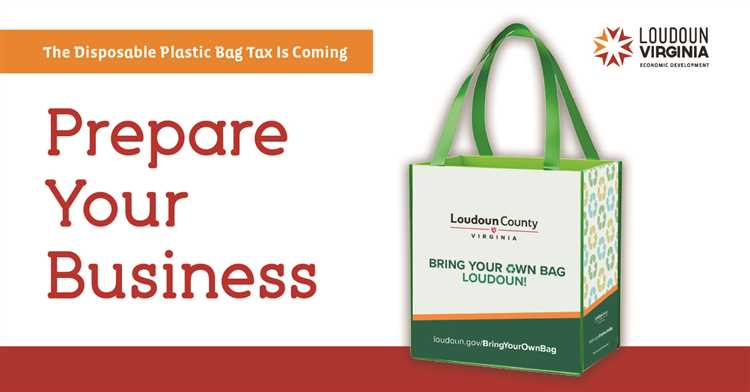
Plastic bags have become a widespread environmental issue due to their negative impact on ecosystems, wildlife, and human health. These lightweight and durable bags are often discarded after a single use, leading to significant waste and pollution.
One of the most significant problems with plastic bags is their non-biodegradable nature. Unlike paper bags or other biodegradable materials, plastic bags can take hundreds of years to break down naturally. As a result, they persist in the environment, contributing to litter and posing risks to wildlife.
Plastic bags are particularly harmful to marine life. When not properly disposed of, they can end up in waterways and oceans, where they are often mistaken for food by marine animals. Many sea creatures, including turtles, fish, and birds, can ingest plastic bags, leading to serious injuries or even death. Additionally, discarded plastic bags can entangle and suffocate marine animals, further threatening their survival.
The production and disposal of plastic bags also have a negative impact on the environment. The manufacturing process requires significant amounts of energy, water, and resources. Additionally, plastic bags contribute to greenhouse gas emissions throughout their lifecycle, from production to disposal. When incinerated, they release toxic fumes into the air, further polluting the environment.
Plastic bags also pose a danger to human health. Many plastic bags can contain harmful chemicals, such as phthalates and bisphenol A (BPA), which can leach into food or water when in contact. These chemicals have been linked to various health issues, including reproductive problems, hormonal imbalances, and increased risk of certain cancers.
Overall, the negative impact of plastic bags on the environment and human health makes it crucial to address their usage and disposal. Implementing plastic bag taxes and encouraging the use of reusable bags can help reduce waste, pollution, and the associated environmental and economic costs.
Environmental Impacts of Plastic Bags
Plastic bags have become a significant environmental concern due to their widespread use and disposal practices. The production, use, and disposal of plastic bags have several negative consequences for the environment, including:
1. Pollution
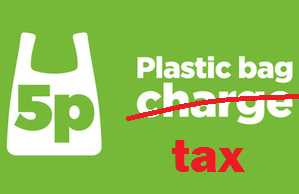
Plastic bags are a major source of pollution. When not properly disposed of, they can end up in water bodies, causing water pollution. Plastic bags are known to release toxic chemicals as they break down, which can contaminate soil and water sources, affecting plant and animal life.
2. Threat to Wildlife
Marine animals, birds, and other wildlife often mistake plastic bags for food or become entangled in them. Ingesting plastic bags can lead to internal injuries, suffocation, and even death. Plastic bags that end up in ecosystems can disrupt fragile ecosystems and harm biodiversity.
3. Litter
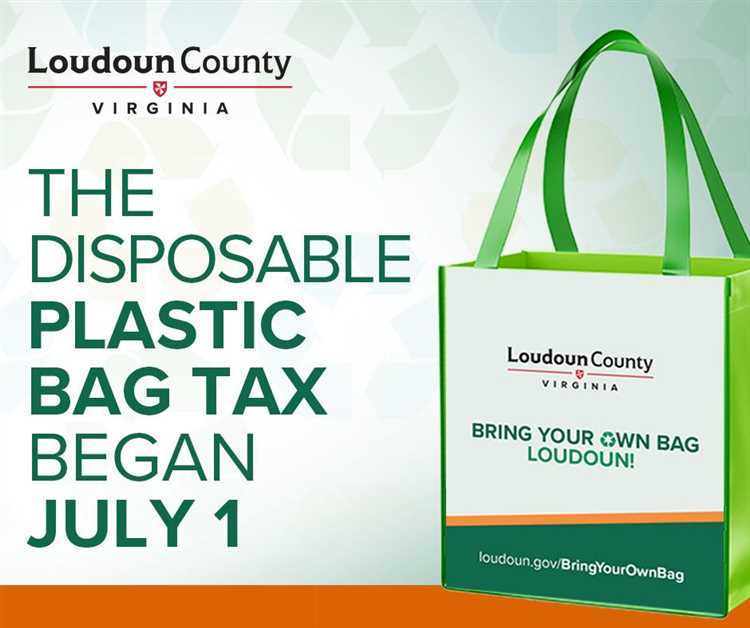
Plastic bags are a common form of litter that can be found in streets, parks, and water bodies. They are not biodegradable, meaning they do not break down easily and can persist in the environment for hundreds of years. This litter not only spoils the aesthetic appeal of an area but also poses risks to wildlife and ecosystems.
To mitigate these environmental impacts, many countries and jurisdictions have implemented plastic bag taxes or bans as a means of reducing their usage and encouraging the adoption of more sustainable alternatives. By reducing the demand for plastic bags, these measures aim to minimize the negative effects associated with their production, use, and disposal.
Plastic Bag Taxes: A Solution
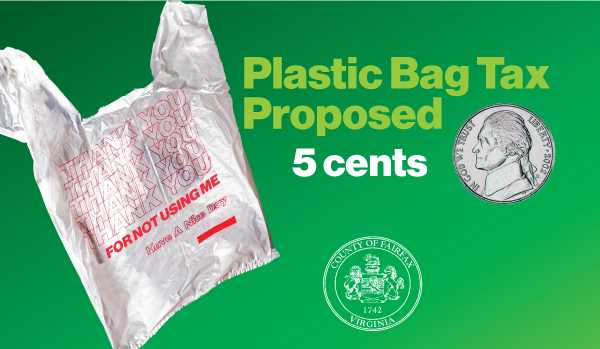
Plastic bag taxes have emerged as a solution to tackle the environmental and economic issues caused by the extensive use of plastic bags. These taxes aim to reduce both plastic bag consumption and their negative impact on the environment.
The introduction of plastic bag taxes has proven to be an effective strategy in many regions around the world. By placing a price on plastic bags, consumers are encouraged to bring their own reusable bags or opt for alternative packaging options. This, in turn, reduces the demand for plastic bags and decreases their overall production.
The environmental benefits of plastic bag taxes are significant. Plastic bags are notorious for their harmful effects on marine life and ecosystems. By reducing the consumption of plastic bags, we can prevent them from ending up in our oceans, rivers, and landfills. This helps to protect marine animals, prevent habitat destruction, and preserve biodiversity.
Plastic bag taxes also have economic advantages. The revenue generated from these taxes can be used to fund environmental initiatives, such as recycling programs or the development of sustainable packaging alternatives. Additionally, plastic bag taxes can create new job opportunities in industries that focus on producing and promoting reusable bags.
Furthermore, plastic bag taxes promote a shift towards a more sustainable and circular economy. By encouraging the use of reusable bags, we can reduce the demand for single-use plastics and promote a culture of waste reduction and recycling. This can have long-lasting positive effects on our environment and help us move towards a more sustainable future.
In conclusion, plastic bag taxes are an effective solution to address both the environmental and economic problems associated with plastic bag usage. By implementing these taxes, we can reduce plastic bag consumption, protect the environment, and promote a more sustainable economy. It is a step in the right direction towards a greener and cleaner future.
The Purpose of Plastic Bag Taxes
Plastic bag taxes are implemented with the aim of reducing the use of plastic bags and promoting environmental sustainability. These taxes are typically levied on retailers or consumers when they purchase single-use plastic bags at stores or supermarkets.
One of the main reasons for imposing plastic bag taxes is to mitigate the negative impact of plastic bags on the environment. Plastic bags are known to contribute to pollution, as they are not biodegradable and can take hundreds of years to decompose. They often end up in landfills, where they can contaminate soil and water sources, and can also be harmful to wildlife. By taxing plastic bags, governments incentivize individuals to use more sustainable alternatives, such as reusable bags, which can help reduce waste and protect the environment.
In addition to their environmental benefits, plastic bag taxes can also yield economic advantages. The revenue generated from these taxes can be used to fund environmental initiatives, such as recycling programs or educational campaigns about the importance of reducing plastic consumption. Moreover, by reducing the demand for plastic bags, these taxes can indirectly lead to cost savings for retailers and consumers. Retailers can save money on purchasing plastic bags, while consumers can cut down on their expenses by using reusable bags instead.
Overall, plastic bag taxes serve as a powerful tool in addressing the environmental and economic challenges associated with plastic bag usage. They encourage individuals to be more mindful of their consumption habits and promote the transition towards more sustainable alternatives. By implementing these taxes, governments can take proactive steps towards a greener and more sustainable future.
Economic Benefits of Plastic Bag Taxes
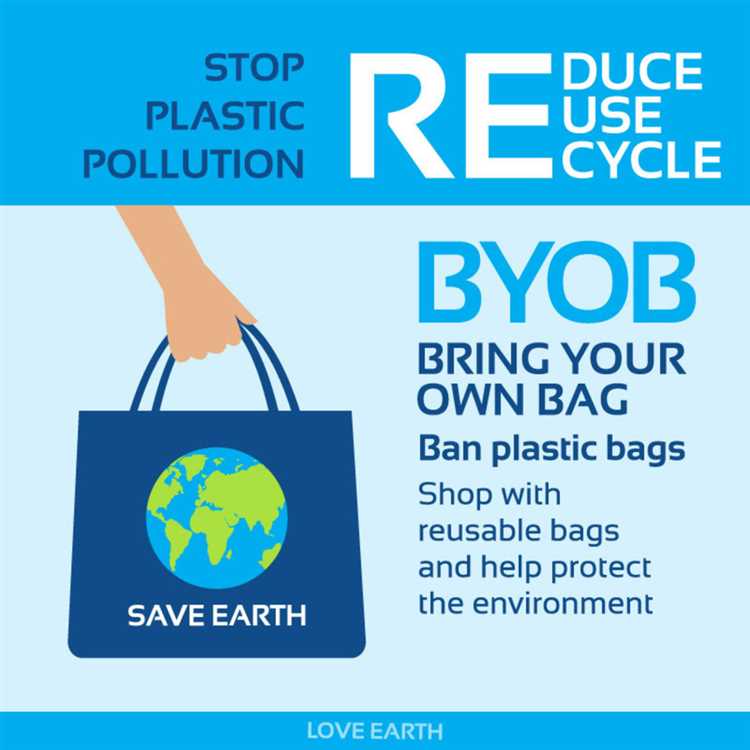
Plastic bag taxes have proven to provide several economic benefits for communities and governments. One key benefit is the potential for increased revenue. By imposing a tax on plastic bags, governments can generate additional income that can be used for various purposes, such as funding environmental initiatives or infrastructure projects.
Moreover, plastic bag taxes can incentivize consumer behavior changes. When faced with a financial cost for using plastic bags, individuals are more likely to opt for reusable alternatives, such as cloth or paper bags. This shift in consumer behavior reduces the demand for plastic bags, which in turn can lead to a decrease in production and distribution costs for retailers, ultimately benefiting the economy as a whole.
Additionally, plastic bag taxes can contribute to job creation and economic growth. As consumers transition to using reusable bags, there may be an increased demand for bag manufacturers and retailers that specialize in eco-friendly alternatives. This increased demand can create new job opportunities and stimulate economic activity within the green sector.
Furthermore, plastic bag taxes can have indirect economic benefits by reducing the negative externalities associated with plastic bag pollution. The environmental damage caused by plastic bags, such as litter and harm to wildlife, can have significant economic costs, including cleanup expenses and damage to tourism industries. By reducing the use of plastic bags through taxation, these negative externalities can be minimized, resulting in cost savings for governments and businesses.
In conclusion, plastic bag taxes have the potential to provide various economic benefits, including increased revenue, behavior change, job creation, and a reduction in negative externalities. These benefits demonstrate the value of implementing plastic bag taxes as an effective policy tool for promoting sustainability and economic growth.
FAQ:
How do plastic bag taxes benefit the environment?
Plastic bag taxes benefit the environment by reducing the consumption and use of single-use plastic bags, which are a major source of pollution. By discouraging the use of these bags, it encourages consumers to opt for reusable bags or alternatives like paper bags, which have a lower environmental impact. This helps in reducing plastic waste, protecting wildlife, and conserving resources.
What are the economic factors behind plastic bag taxes?
Plastic bag taxes have several economic factors behind them. Firstly, they generate revenue for governments, which can be used for various purposes like environmental conservation, waste management, or education. They also help in reducing costs associated with plastic bag disposal and cleanup. Moreover, by promoting alternative bags like reusable or paper bags, it can stimulate the market for these products, creating new economic opportunities.
Are plastic bag taxes effective in reducing plastic bag consumption?
Yes, plastic bag taxes have been found to be effective in reducing plastic bag consumption. Several studies have shown that in areas where plastic bag taxes have been implemented, there has been a significant decrease in plastic bag usage. For example, countries like Ireland and Denmark saw a decrease of over 90% in plastic bag usage after implementing such taxes. This indicates that the financial disincentive imposed by the tax successfully influences consumer behavior and encourages the use of alternative bags.
Do plastic bag taxes have any negative effects on consumers or businesses?
Plastic bag taxes can have some negative effects on consumers and businesses. For consumers, it may lead to increased costs as they have to pay for the plastic bags they were previously getting for free. However, this can be mitigated by the use of reusable bags in the long run. For businesses, there may be initial resistance or additional costs associated with implementing the tax or providing alternative bags. However, these costs can be balanced out by potential cost savings in plastic bag purchases and disposal.